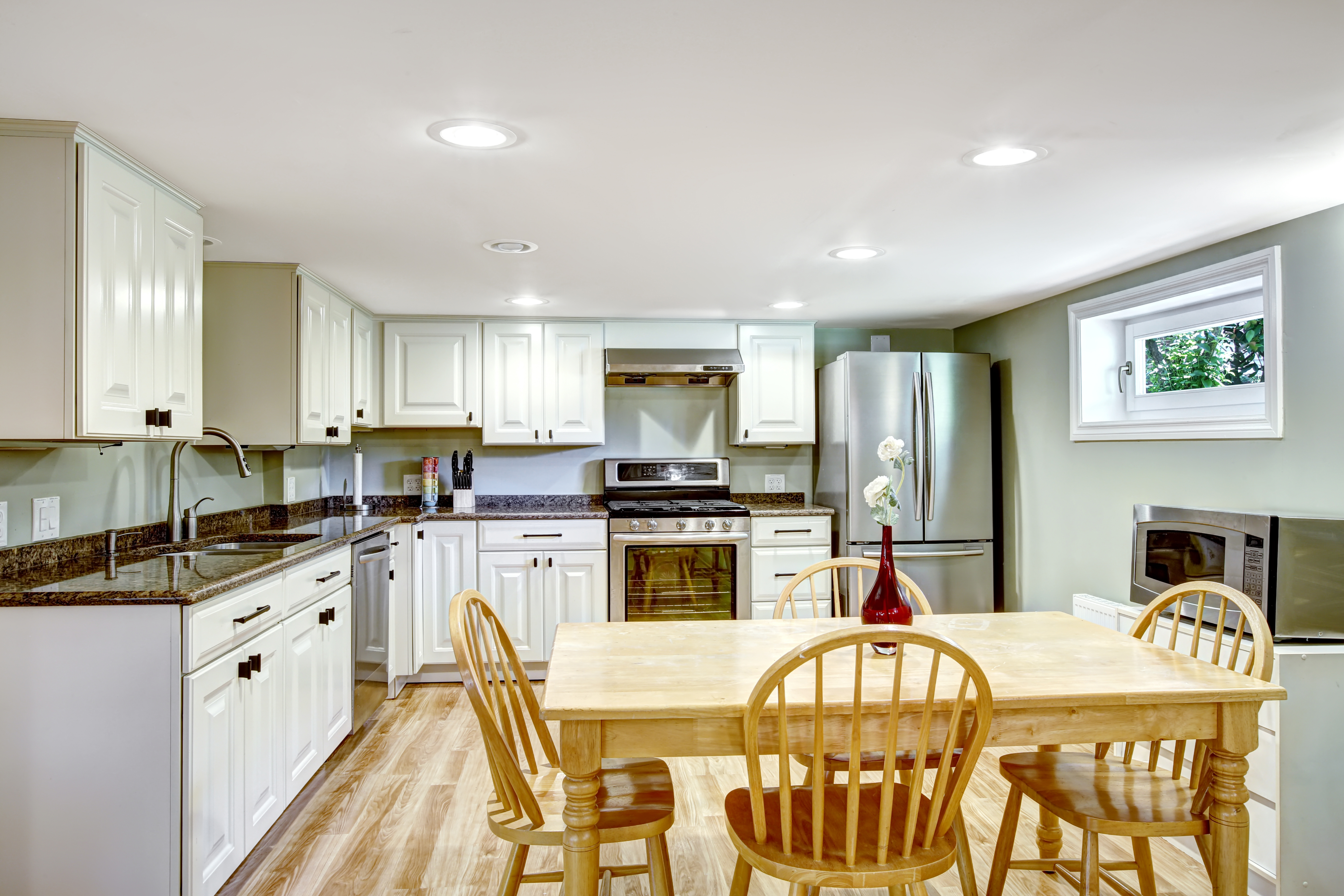5 Tips for Converting a Basement into an Apartment
Are you thinking about converting your basement into an apartment for one of your children or to rent it out in order to make your real estate investment profitable? Read this article to discover five essential points to consider when optimizing unoccupied space that will increase the value of your home.

1. Check with your municipality
When it comes to transforming a basement into an apartment, some cities and municipalities have very specific regulations. Before starting the work, make sure you are familiar with these legal aspects.
For example, it could be required that:
- the floor area be less than 30% of the owners’ dwelling, including the mechanical room;
- the apartment be equipped with an independent external access;
- the plumbing and ventilation system not be connected to those of the main residence;
- an additional electric meter be installed to track the consumption of each unit, except if the rent includes electricity;
- the basement ceiling be a minimum height of seven feet, or sometimes eight;
- the windows be large enough for a person to easily crawl through in an emergency;
- smoke alarms be
installed in each room, including the bedrooms.
You will have to apply
for a permit from the urban planning department before starting any
renovations. In addition, an inspector will undoubtedly verify the conformity
of the work during the process.
2. Establish a budget
The profitability of
your project depends, first and foremost, on respecting a detailed budget that
takes into account your financial capacities. Obviously, the more rooms you
want to build, the more expensive this project is likely to be. The main
expenses that you will have to keep in mind when planning your budget are
materials and labour.
For instance, renovating
an unfinished basement without a bathroom, can cost you between $25,000 and $50,000. Count on between $10,000 and $22,000 more for the addition of a
bathroom, depending on any plumbing to be done and fixtures you chose. It’s a good idea to get several quotes for the work
so that you can select a contractor you can trust.
3. Carefully plan the work
Even though it may be
beautifully designed, a basement environment is different from the rest of the
house. Natural light, humidity, ventilation are all elements to take into
consideration when creating a space that is both comfortable and safe.
Insulation
Quality flooring is very important in ensuring the comfort of the occupants. Remember to
properly insulate the floor to reduce the humidity and make the rooms more
comfortable. If your budget allows, you could also add electric underfloor heating in the bathroom.
The same goes for installing acoustic insulation in the ceiling to
reduce noise between the basement and first floor. Consider hiring a qualified
contractor for quality work and to avoid headaches.
Light
Abundant windows, sufficient lighting, light paint colour on the walls: there are many ways to brighten up a basement apartment. Here is one tip from the experts: choose kitchen and bathroom cabinets with a glossy finish that reflects light and is visually appealing.
Storage
To optimize space, choose innovative storage solutions, such as a Murphy
bed, a bath/shower combination or retractable shelving. Personal belongings can
be easily stored without cluttering the rooms unnecessarily.
Finishes
Although quality materials cost more, they generally add great value to
an apartment. In addition to improving the look, high-quality finishes
could convince a future tenant to pay a higher rent.
Need a hand in evaluating the work to be done? Use the services of an architect or engineer certified by the Régie du bâtiment du Québec.
4. Take advantage of tax deductions
There are two types of
expenses involved in renting a basement apartment that can be used for tax purposes:
current expenses and capital expenses. The first category includes expenses
claimed for the year in which they were incurred. They relate to the work of
maintaining the original state of the property. Capital expenses, on the other
hand, are claimed progressively over a period of several years. They are costs
involved in improving or extending the useful life of the dwelling.
To learn more about all
the expenses that can be deducted on your income tax return, consult the
website of the Canada Revenue Agency.
5. Review your home insurance
You have an obligation
to inform your insurer of the changes that will be made to your property. Moreover, the addition of an
apartment could have an impact on the insurer’s assessment of the risk and affect your home insurance premium.
Furthermore, you will probably need to take out tenant insurance. Good to know: although it is strongly recommended, the law does not require a tenant to have home insurance. Nevertheless, it would protect the tenant’s property and cover its civil liability in the event of a claim.
Although it is one of the most profitable renovations, you should think seriously before converting your basement into an apartment. Surround yourself with certified professionals to properly plan all the work and maximize your return on investment.
See also:
Four Ideas on How to Monetize Your House
How to maximize space in a small kitchen
How to increase natural light in a room
 The Largest Number of Homes for Sale
The Largest Number of Homes for Sale




